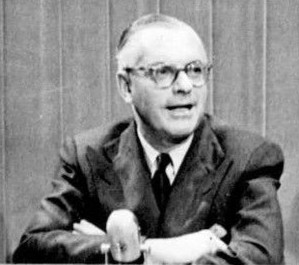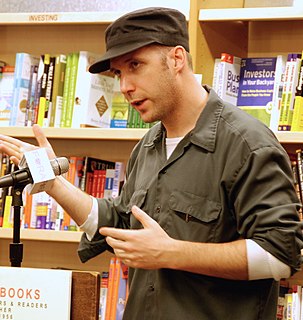A Quote by Errol Morris
But there's a big difference between, say, reporting on a story and simply making up a story.
Related Quotes
Translation is harder, believe it or not. You do have to come up with a story, and actually I'm mystified by that process. I don't exactly know how the story just comes, but it does. But in writing a story that you're inventing, versus writing a story that somebody else has made up - there's a world of difference. In translation you have to get it right, you have to be precise in what you're doing.
Say you have a headline like "Mountain Bike Stolen," and then you read the story, read another story about it the next day, and then the next week, and then the next year. News is a process of expansion, the filling in of detail, and making narrative connections - not based on chronology, but based on features of the story. There are narrative connections made between props, between characters, between situations, and so forth.
I think that when I'm telling a story, I'm doing the best I can to tell the story as fully as I can, and if there are various fractures that happen in the story, then that's just the very thing that the story is as opposed to my looking for avenues of difference in one story. They just really do exist. For me, anyway.
I get up in front of a bunch of kids and say 'Hey, I'm gonna tell you a new story. Who wants to be in a new story?' Well some kid always sticks up their hand and that gives me a name, but it doesn't give me a story. I just say whatever comes to my mind and usually it's not that good. Every once in a while, however, I say something that turns into a really good story.
I think the difference between a lie and a story is that a story utilizes the trappings and appearance of truth for the interest of the listener as well as of the teller. A story has in it neither gain nor loss. But a lie is a device for profit or escape. I suppose if that definition is strictly held to, then a writer of stories is a liar - if he is financially fortunate.
It's only a story, you say. So it is, and the rest of life with it - creation story, love story, horror, crime, the strange story of you and I. The alphabet of my DNA shapes certain words, but the story is not told. I have to tell it myself. What is it that I have to tell myself again and again? That there is always a new beginning, a different end. I can change the story. I am the story. Begin.
Each of us is our own story, but none of us is only our own story. The arc of my own personal story is inexplicably and intrinsically linked to the story of my parents and the story of my neighbor and the story of the kid that I met one time. All of us are linked in ways that we don't always see. We are never simply ourselves.
So tell me, since it makes no factual difference to you and you can't prove the question either way, which story do you prefer? Which is the better story, the story with animals or the story without animals?' Mr. Okamoto: 'That's an interesting question?' Mr. Chiba: 'The story with animals.' Mr. Okamoto: 'Yes. The story with animals is the better story.' Pi Patel: 'Thank you. And so it goes with God.






































